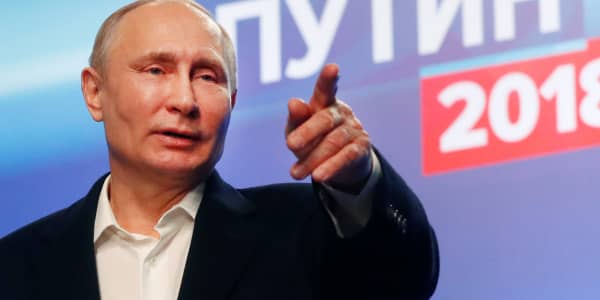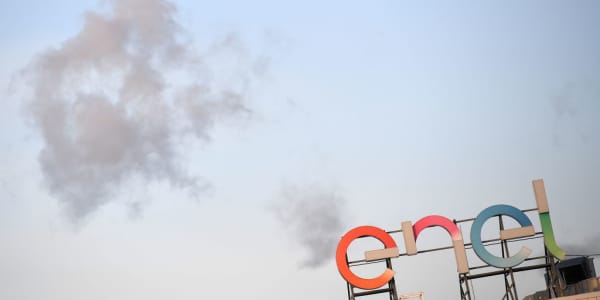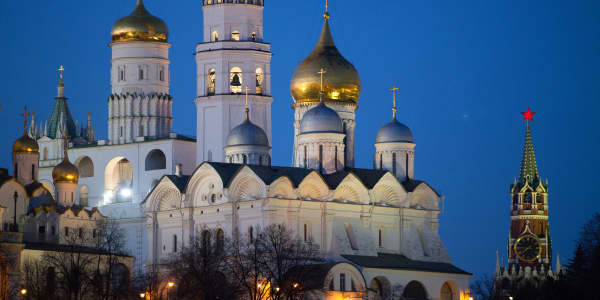Russia will welcome leaders and executives from the world of business and economics to the St Petersburg International Economic Forum (SPIEF) this week.
The two-day event, which takes place on Thursday and Friday, is a good opportunity for analysts, economists and investors to examine the current state of the Russian economy and what's performing well, and not so well.
Russia has had a lot to contend with over the last few years, although a number of its obstacles to economic growth and political inclusion are of its own making — like the fact that it has to contend with international sanctions for its illegal annexation of Crimea (the Kremlin would say it was restoring its rightful territory) and its role in a pro-Russian uprising in east Ukraine.
These events pushed Russia into the cold in 2014, but it has not done much to ingratiate itself back into the international community, given its support for the rogue regime of Bashar Assad in Syria, its alleged responsibility for a nerve agent attack in the U.K. and suspected meddling in elections in the U.S. and Europe, where populism is destabilizing its neighbor.
Still, Russia appears to have learned to weather the economic crisis caused by sanctions, capital outflow, a plunge in the currency and rampant inflation and is in better shape now than it was a few years ago. In 2017, the economy grew by 1.5 percent — nothing to elicit wild celebrations, but decent enough given the previous two years' contractions.
Russia's central bank has been a big part in steadying the ship, achieving a runaway rate of inflation amid the crisis down to a rate of 2.4 percent in April (the target is 4 percent) — a far cry from the 15.7 percent inflation rate seen in October 2015. Meanwhile, Russia's key interest rate now stands at 7.25 percent, down from a high of 17 percent it imposed in December 2014 at the height of the country's ruble crisis.
President Vladimir Putin doesn't appear to have been adversely affected by the crisis either. Rather, opinion polls have consistently shown his approval ratings to be high with Russians, at around 80 percent or more, according to data from independent pollster the Levada Center. In fact, his approval ratings shot up in 2014 when Russia annexed Crimea and have remained high ever since, despite the economic and political crisis that ensued.
Whether Putin can fulfill his latest campaign pledges remains to be seen, however.
Social discontent on the horizon?
Looking to the present and future, analysts and economists say Russia has both exceeded expectations and failed to meet others. "Russia's macro-economy has displayed remarkable resilience over the past four years despite considerable negative headwinds," Daragh McDowell, principle Russia analyst at Verisk Maplecroft, told CNBC in emailed comments this week.
"In particular, the central bank has apparently successfully tackled high rates of inflation, which should help drive consumption-led growth into the future."
McDowell noted that rising oil prices (benchmark Brent crude is currently fetching just below $79 a barrel) will give the Treasury of Russia a windfall.
"The breakeven oil price for the current federal budget is believed to be below $60, meaning that if current prices hold Moscow can expect a significant fiscal windfall. Even if oil prices dip below the $60 mark, Russian bonds are now investment grade and there is no imminent risk of a fiscal crisis," he said.
Nonetheless, McDowell said that there was a high probability that the Kremlin would "once again fail to use economic recovery and benign economic conditions to enact long-delayed reforms and shifting away from hydrocarbon dependency."
Perhaps the biggest survivor of Russia's economic crisis and political isolation has been President Putin himself. With little-to-no competition from rival candidates, Putin was re-elected for a fourth term in March. Ahead of the election, he gave a "state of the nation" address in which he vowed to improve the quality of life of millions of Russians by boosting welfare spending, creating jobs and improving regional infrastructure, from roads to hospitals and affordable housing.
How he will pay for those things is another matter. Liza Ermolenko, an economist at Barclays Capital, agreed that the re-election of Putin had prompted attention to shift to "what the government's priorities in economic policy will be" and how they will be funded.
"The president has promised an ambitious increase in spending on healthcare and infrastructure (equivalent to $162 billion or close to 2 percent of gross domestic product per year over the next six years). But it remains unclear how this can be financed," Ermolenko said in emailed comments to CNBC.
"A pension reform, including an increase in the pension age, seems closer than ever. And there remains a distinct possibility of an increase in the (sales tax) VAT rate," she said, a policy unlikely to be popular in Russia.
Predicting that growth would remain "mediocre," in the region of 1.5 to 3 percent GDP per annum over the next three to five years, Verisk Maplecroft's McDowell said rumblings of discontent would not be far away.
"In the context of several years of declining wages, and major gaps in economic developments between the regions, this is an insufficient level of growth to stave-off social discontent," he said.





